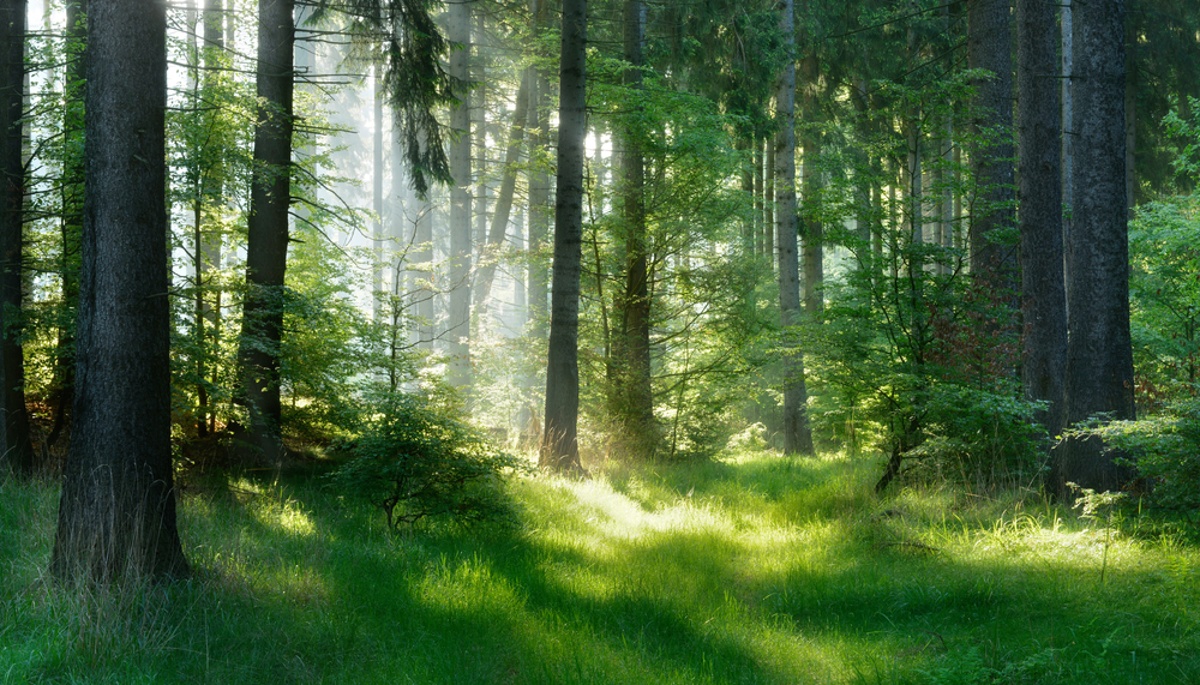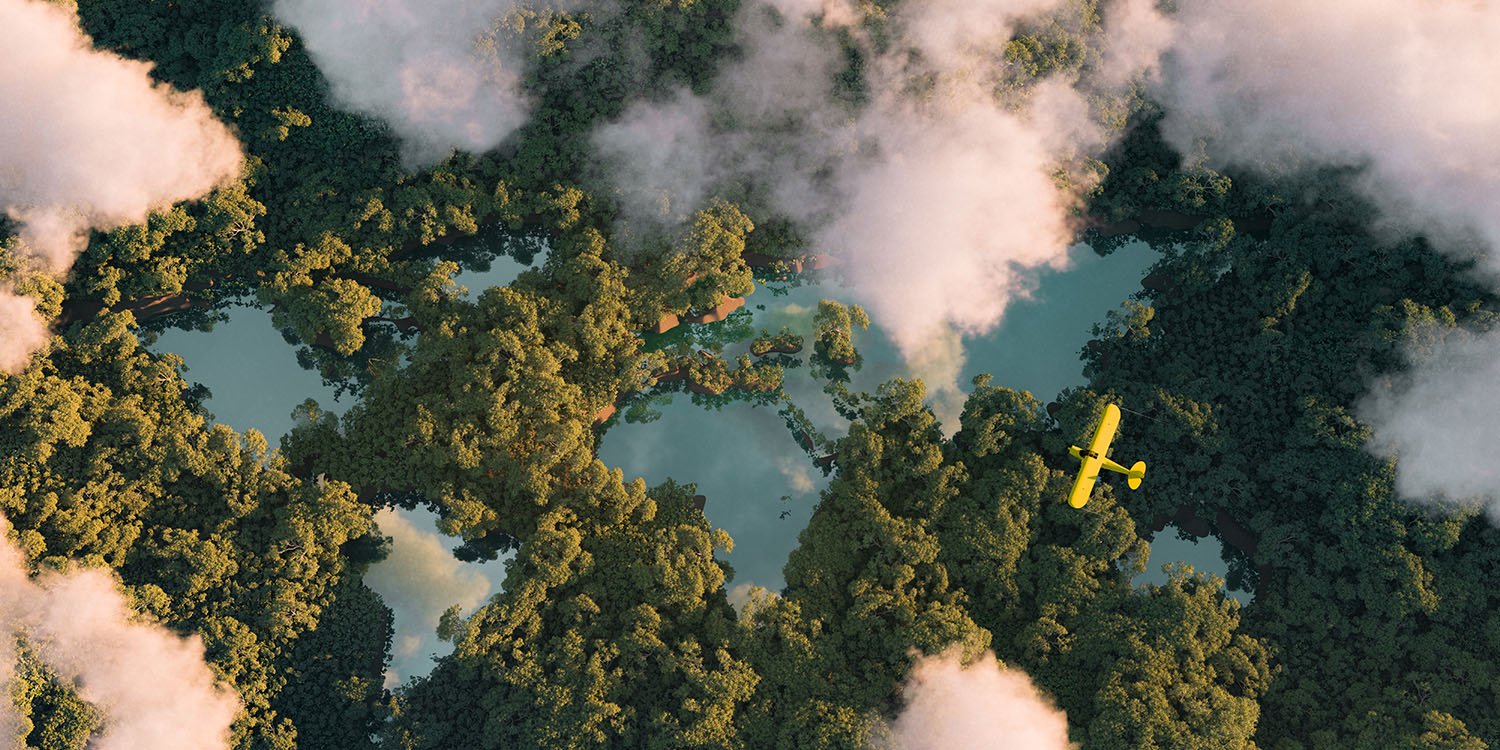Despite the global slowdown during the pandemic, atmospheric carbon dioxide in 2021 shot up to 414.72 parts per million, its highest level ever!

In an attempt to combat the rising numbers, people all over the world have started to demand that the companies that are most responsible for these emissions begin to take responsibility.
With the upward pressure from consumers and downward pressure from governing bodies, companies have started to invest in carbon credits to try and offset their carbon emissions.
As a project developer, we enable this by investing, managing and developing large-scale nature-based projects to generate biodiversity- and carbon offsets and help companies to achieve net zero.

What are carbon credits?
Carbon credits represent 1 ton of carbon dioxide removed from the atmosphere and are purchased by our clients to offset their carbon emissions in other areas.
These areas range from industrial production to the transport of goods and material sourcing.
Carbon credits enable projects and organizations doing work that benefits the planet (such as DGB) to make money and remain funded.
While this is a great place to start, carbon credits are often purchased in isolation; they are an easy way for companies to tick a box, but the problem is much bigger, and the solution needs to be bigger, too.
Nature is more than just a carbon sink; we must look at ecosystems, the health and safety of organisms around the world, and more.
By funding projects that restore harmony within an ecosystem, companies can do so much more than offset their carbon emissions.
What is a carbon sink?
Forests that retain more carbon than they produce, are considered a carbon sink. The excess storing of carbon allows for carbon emissions elsewhere to be offset.
These carbon sinks are often created through reforestation projects, but carbon sinks can also exist in the ocean and soil on the earth.
Though natural areas and trees can help contribute to carbon sinks, their health and rejuvenation offer so many more benefits.
The importance of resilient ecosystems
Our motivation to restore natural areas and maintain ecosystems should not come from capitalising on carbon credits.
Instead, it’s important to examine the benefits of keeping natural areas as close to their natural state as possible.
Resilient ecosystems that are filled with a variety of plants, animals, and microorganisms are proven to be much more fruitful and resilient than those with poor diversity.
Genetic diversity in plants and animals is crucial to their survival within changing circumstances.
We have seen animals evolve to deal with harsher temperatures; plants become more resilient to bouts of time without water, and more.
Biodiversity in ecosystems helps the living beings in those ecosystems adapt to their challenges and become more resilient, living to fight for more time to come.
When humans interfere with ecosystems, deciding to plant one set of plants where there used to be a wide variety, we are actively harming the future of all the organisms in that space and removing the tools at their disposal to adapt and move forward.
Resources of local communities
Contributing to biodiversity and the health of natural lands offers massive benefits to the native organisms in those areas, but these practices are also crucial to the survival of local communities and indigenous populations.
Tearing down forests to create agricultural land is often seen as “necessary” to provide food to people.
However, without the proper plants and trees to keep the soil healthy, agricultural land runs the risk of depleting, and planted food can die easily, lose nutritional value, and even harbour diseases.
Throughout history, local communities had to learn how to work with the land they lived on, finding nutrients and supplies without abusing their natural resources.
Today, on a global scale, many communities are forced to farm, causing more harm to the land they live off of, making these communities less sustainable and resilient.
Projects to watch

At Dutch Green Business, we have various projects in motion, but our Cameroon Reforestation Project and our Kenya Reforestation Project are two examples of projects that are built around much more than carbon credits.
Sure, reforestation offers a lot in terms of storing carbon, and we’ve learned that without trees and forests, we have fewer resources to combat climate change, but these projects are primate examples of a holistic approach and bringing more to the table than just carbon offsetting.
The Kenya Reforestation Project will focus on planting 3 million trees over the next three years.
This project puts biodiversity at the centre of everything, planting fruit trees and other indigenous fast-growing trees in the area.
The reforestation of trees in many water catchment areas will help drive water security in addition to biodiversity.
Water security is a massive challenge around the world as different countries deal with drought and other water challenges.
The Cameroon Reforestation Project helps restore the Congo Basin, providing biodiversity, strengthening habitats, and more.
Devastated by logging and local people collecting firewood, this area is in desperate need of more trees, and we believe that the fertile soils, high levels of precipitation, and steady climate, will propel this project toward success.
Climate solutions are complex
All of our projects at Dutch Green Business produce carbon credits that can be purchased, and we stand by the idea that carbon credits can help offset some of the biggest emissions by large companies.
However, to us, it’s so much bigger. The land we all live on provides us with nutrients, homes, and a future.
Restoring the land and revitalizing our planet will not only serve natural forces such as plants and animals, but it will directly benefit humanity, too.
We’ve seen the detriment that abusing our natural resources can do; as wildfires ravage one area of the globe, others see unprecedented flooding.
If we want a real solution to the issues we face, we must all commit to doing more than simply purchasing carbon credits.
Every single action makes a difference, and at Dutch Green Business, we’re just getting started.







